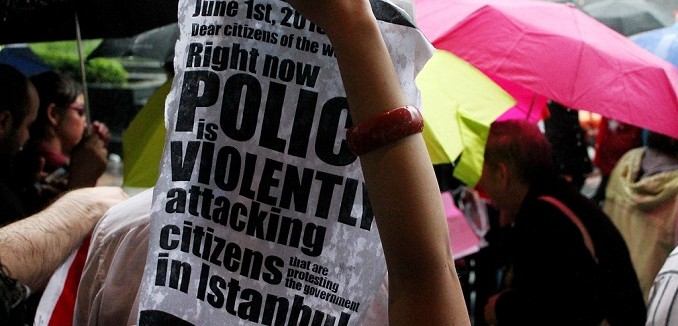Turkey was engulfed by anti-government protests over the weekend and into Monday, after small demonstrations aimed at stopping the demolition of a city park in Istanbul were met with heavy-handed police tactics, including the use of tear gas, which in turn triggered further protests.
On Friday Turkish protesters across the country took to the streets to call for the resignation of Prime Minister Recep Tayyip Erdogan and his Justice and Development Party (AKP) government, broadly indicting a decade of Islamist policies:
Critics point to what they see as his authoritarianism and religiously conservative meddling in private lives in the secular republic. Tighter restrictions on alcohol sales and warnings against public displays of affection in recent weeks have also provoked protests. Concern that government policy is allowing Turkey to be dragged into the conflict in neighboring Syria by the West has also led to peaceful demonstrations.
Although Erdogan remains the country’s most popular politician and the AKP remains the country’s dominant party, Erdogan’s denigration of the protesters – he has sought to marginalize them as secular and fringe – has created dissent within the ruling party. Turkish President Abdullah Gul, who was elected president as an AKP member, is defending the demonstrators:
AP quoted Gul saying: “Democracy does not mean elections alone. There can be nothing more natural for the expression of various views, various situations and objections through a variety of ways, besides elections.”
Analysts now fear that Erdogan will seek to bolster his domestic standing by turning Turkish attention outward. On Saturday, the day after mass demonstrations erupted, Gaza-based media outlets reported that Erdogan had set a date to travel to the Gaza Strip. Previous suggestions that Erdogan would conduct the trip, which would be popular with Erdogan’s Islamist base, had been criticized heavily by administration and Congressional figures in the United States.
[Photo: Mental Balance / Flickr]




